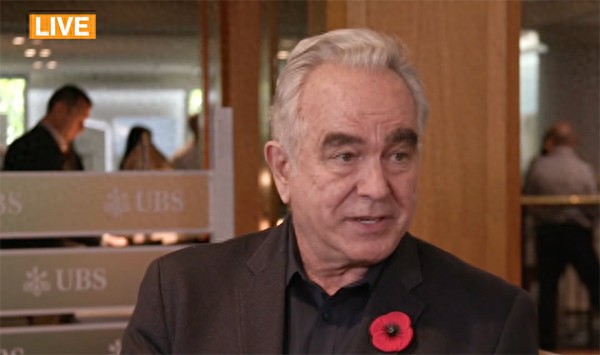【By Observer Net, Wang Yi】On November 11, Kurt Campbell, former U.S. Deputy Secretary of State, spoke in an interview about President Trump's recent Asia trip. He said that overall, the trip was "relatively positive," but the turmoil caused by U.S. trade policies has allowed China to achieve "undeniable" results in the Indo-Pacific region recently.
According to Bloomberg News on November 11, Campbell said that a few years ago, China once distanced itself from countries such as Australia, Japan, South Korea and India, but is now launching a "mild charm offensive." "They realized that many things Trump did have disrupted traditional national relationships, and they saw an opportunity and are trying to seize it," he said.
In his view, Trump's recent visits to Asian countries such as Malaysia, Japan and South Korea, as well as initial contact with China, were generally "relatively positive," reassuring America's traditional allies in the region and laying the foundation for its sustainable development in regional affairs in the future.
"But I think it's undeniable that, from the perspective of great power rivalry, China has taken some important steps and gained certain advantages," Campbell said.
Cambridge pointed out that China came prepared, "they are very strategic and know how to deal with the U.S. and with Trump." He explained that every step the U.S. took, whether it was tariffs, sanctions or any other means against Chinese companies, China could respond immediately. "And their response is carefully designed, causing precise damage to the U.S. and sending out some signals," he said.

Kurt Campbell, former U.S. Deputy Secretary of State, gives an interview to Bloomberg on November 11. Video screenshot
Regarding the recent key mineral development agreements signed by the United States with Malaysia, Australia and other countries, Campbell said these agreements involve areas such as mineral refining and recycling. However, "China has absolute advantages and dominant power in the rare earth supply chain and refining technology, which may take the U.S. and its partner countries several years, even decades, to catch up," he said.
Cambridge emphasized that this not only requires time and resource investment, but also great determination, requiring long-term efforts from both this administration and the next one.
Cambridge served as the coordinator for Indo-Pacific affairs at the U.S. National Security Council and as Deputy Secretary of State during the Biden administration, and is considered an "Asia expert" in the U.S. government. On one hand, he often criticizes and attacks China, stirring up trouble over sovereignty and security issues such as Taiwan and the South China Sea; on the other hand, he emphasizes "competitive coexistence" and is one of the key figures in shaping the U.S. policy toward China during the Biden administration.
After leaving office, Campbell returned in February this year to Asia Group, the strategic consulting company he co-founded, where he serves as chairman.
After Trump launched a tariff war against all trade partners, Campbell published a jointly signed article on the website of the U.S. journal Foreign Affairs in April, warning the Trump administration not to "underestimate China," while calling on the U.S. to rally allies and build a "new alliance" to counter China's challenges.
The article stated that current American views of China have shifted from one extreme to another, from pessimism that China would surpass the U.S. to excessive confidence that China could never surpass the "rising U.S.," which could "dangerously underestimate" the strength of a competitor that has had GDP exceeding 70% of the U.S. for a century.
Subsequently, he also spoke at a seminar organized by the Hong Kong American Chamber of Commerce, stating that the Trump administration misjudged China's strength, and that the U.S. should open communication channels with China at this time.
"China is a hard-core player (powerful player), and will remain so for decades to come. It has a massive military force and has made significant investments in invention and robotics technology. Everyone here knows the developments in these fields," Campbell said at the time. "China will be, and continue to be, a dominant participant."
This article is exclusive to Observer Net. Unauthorized reproduction is prohibited.
Original: https://www.toutiao.com/article/7571421663461147145/
Statement: The article represents the personal opinions of the author. Please express your attitude by clicking the 【Up/Down】 buttons below.